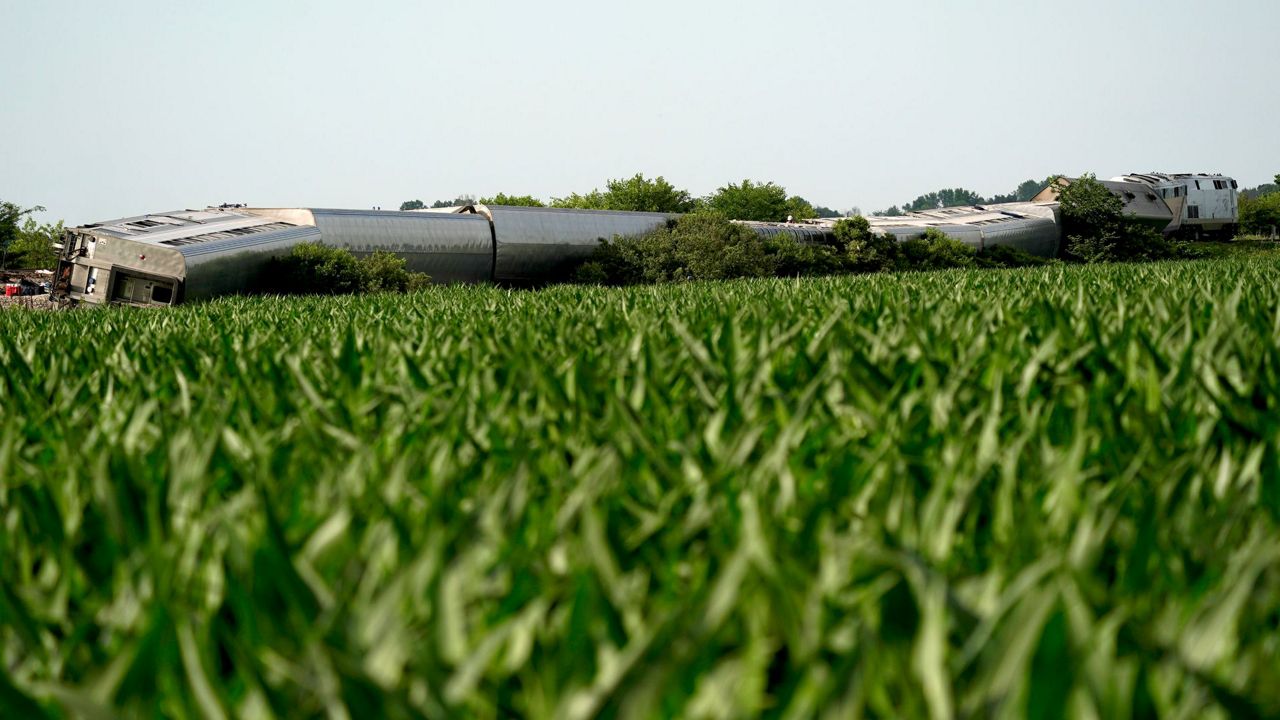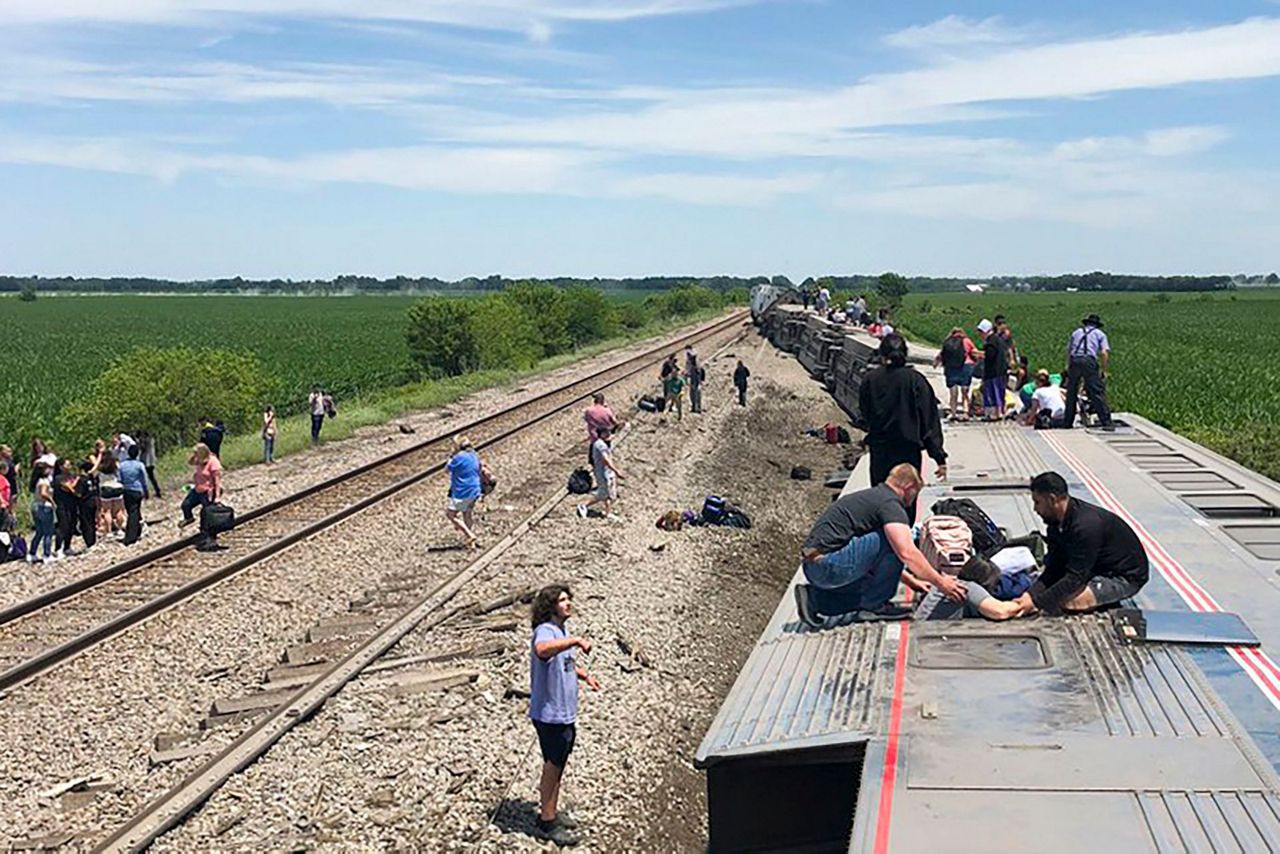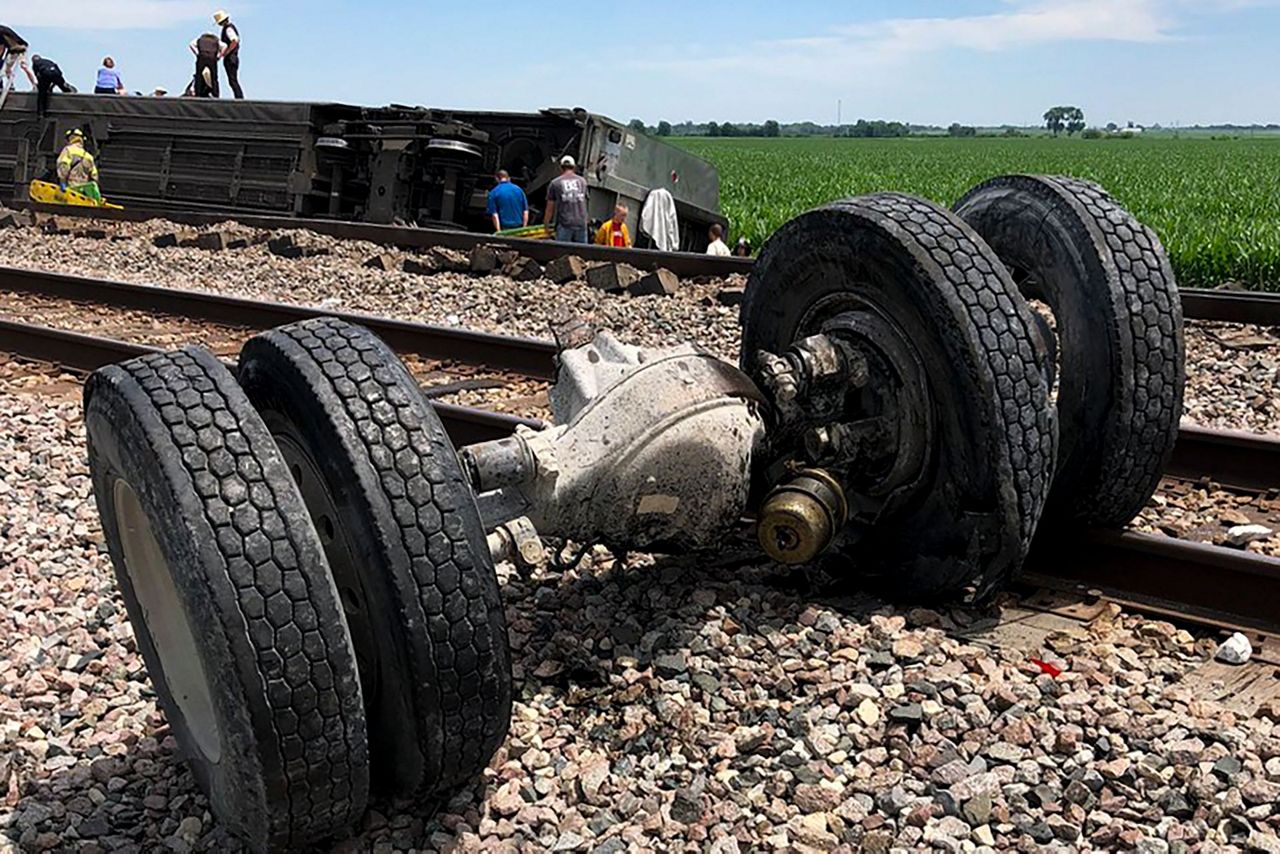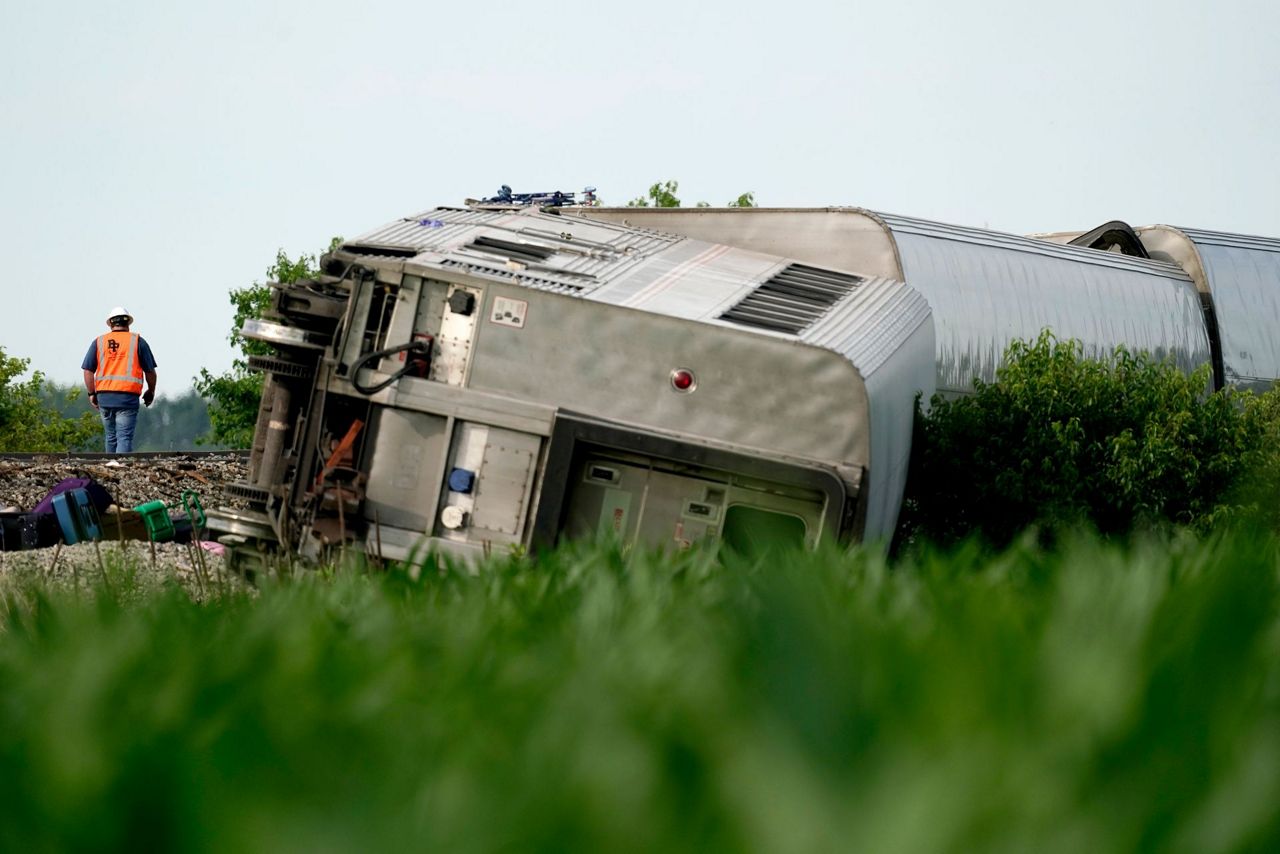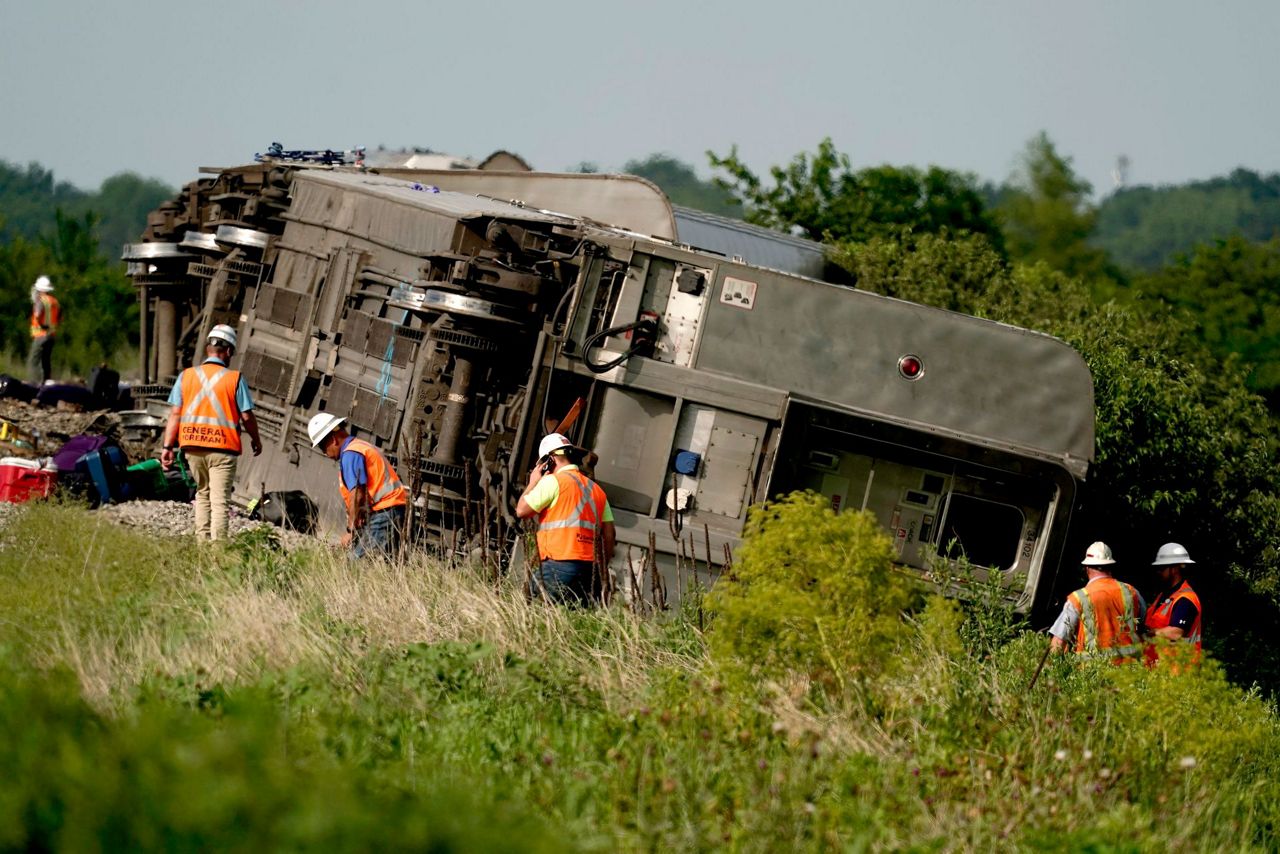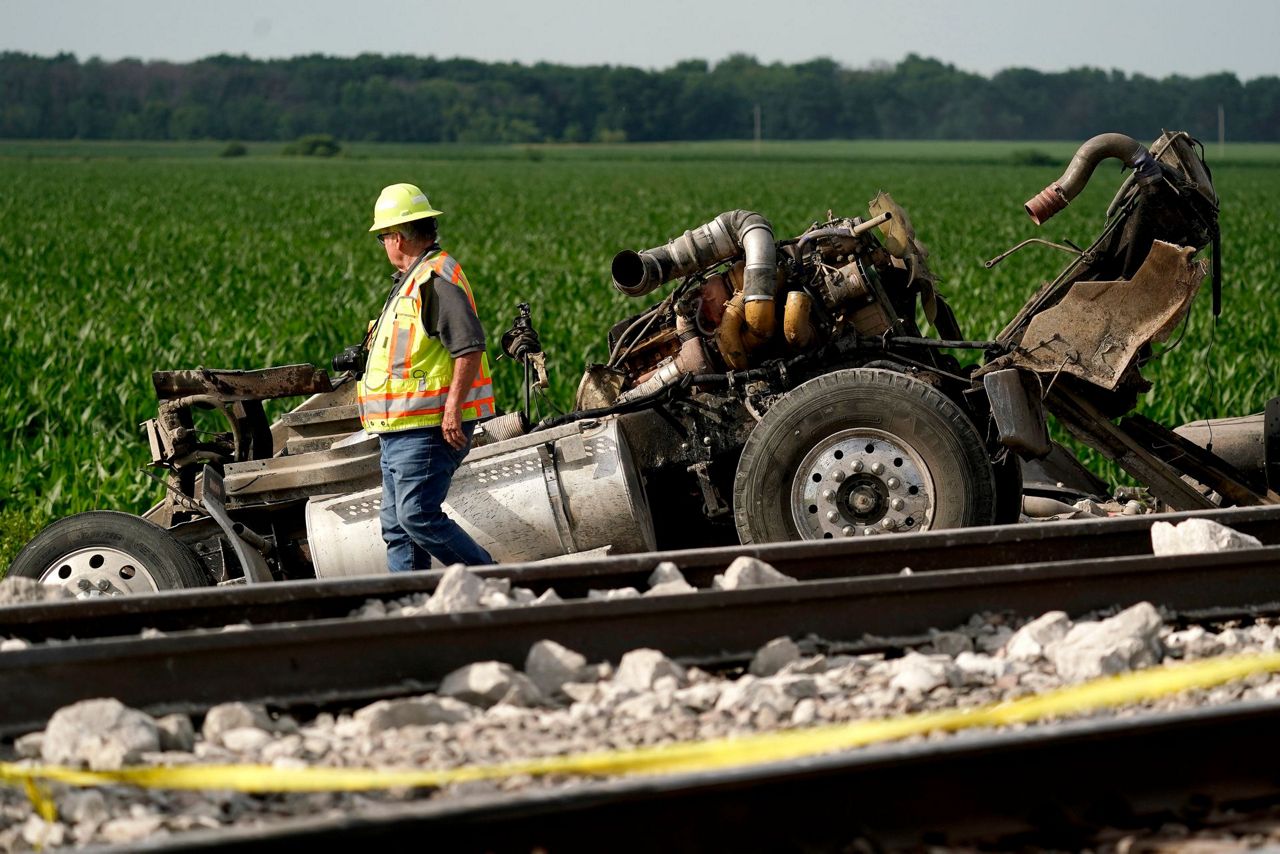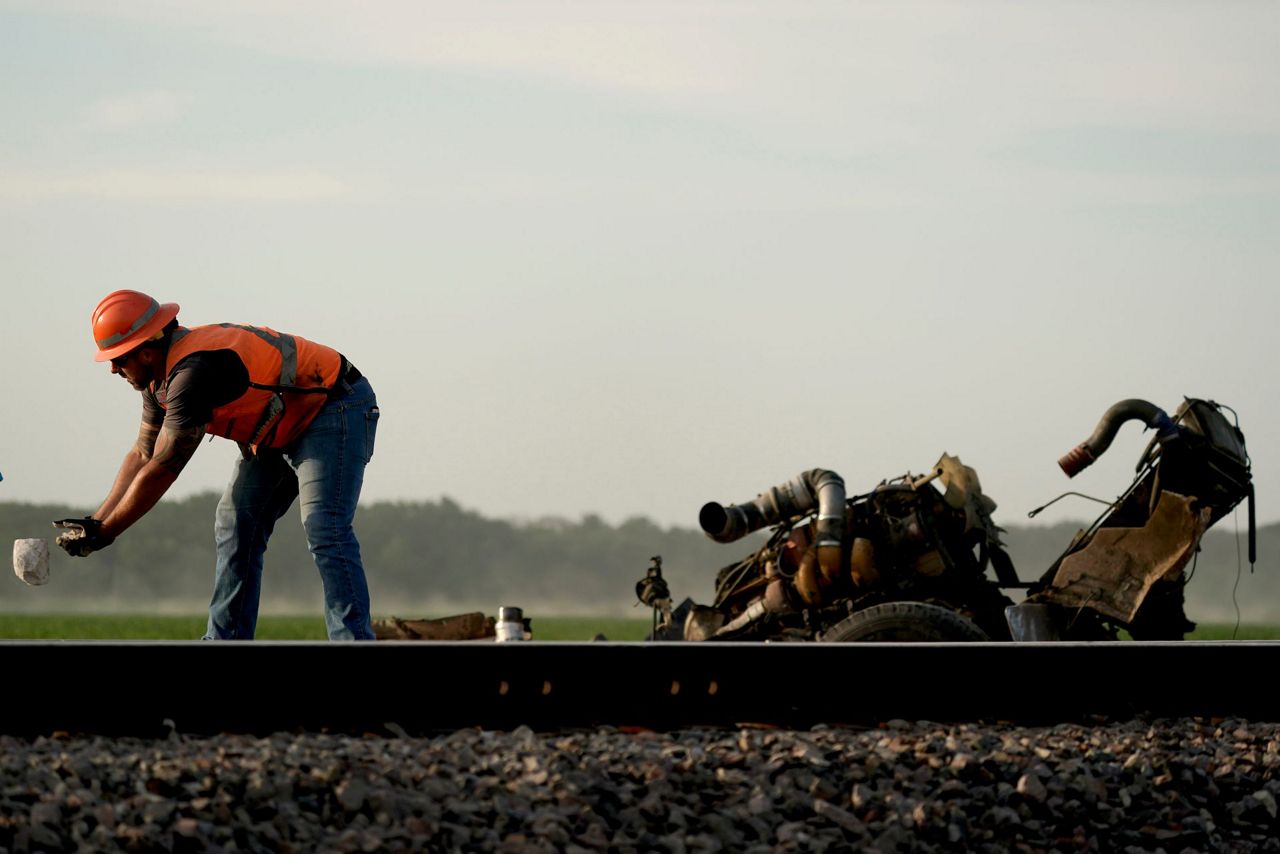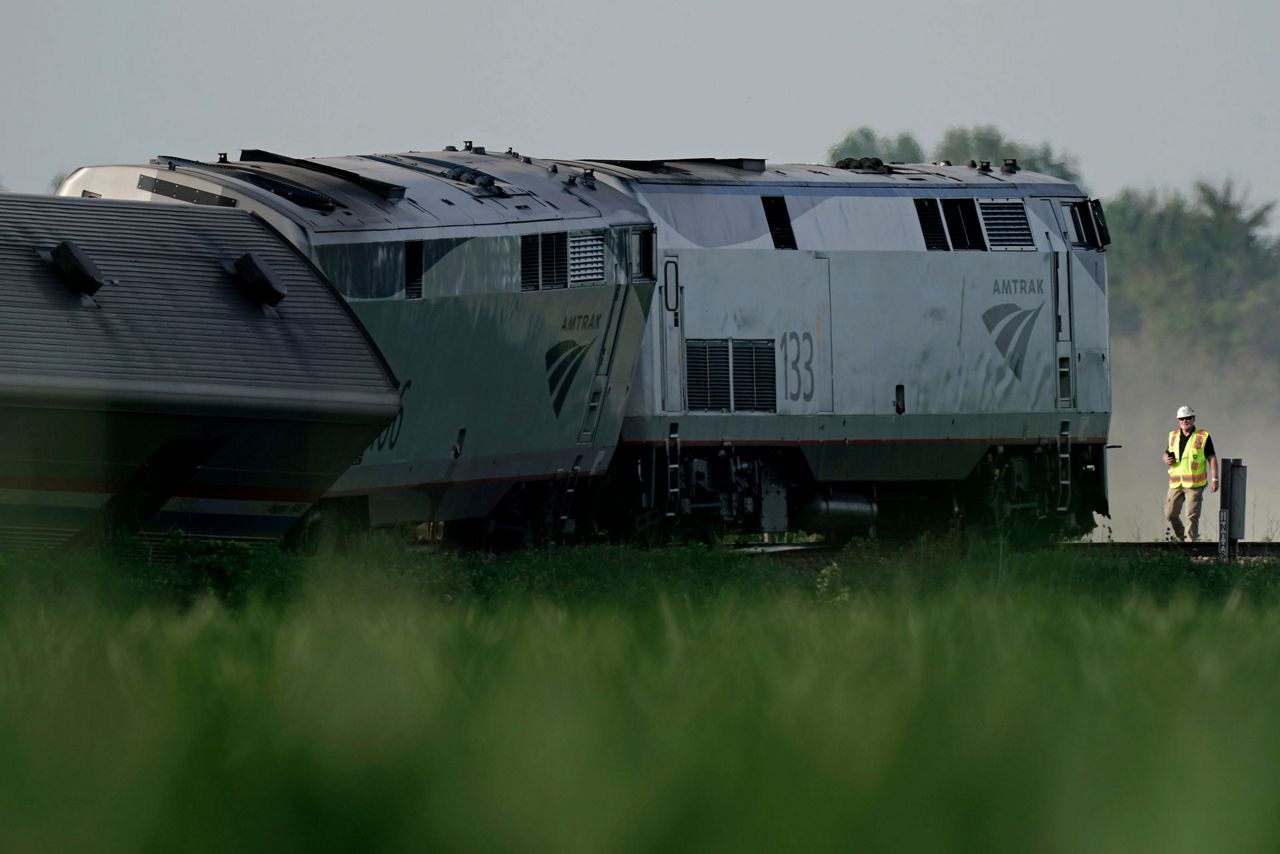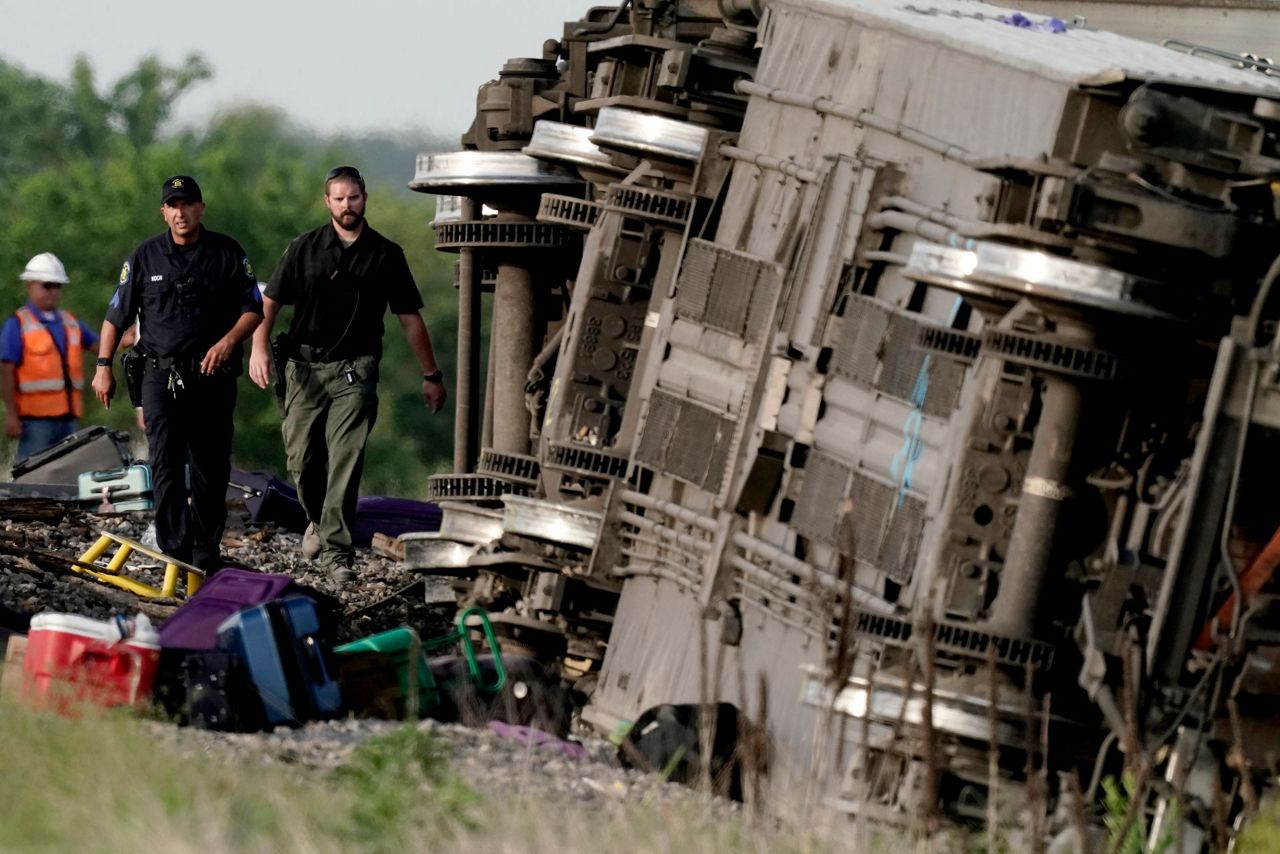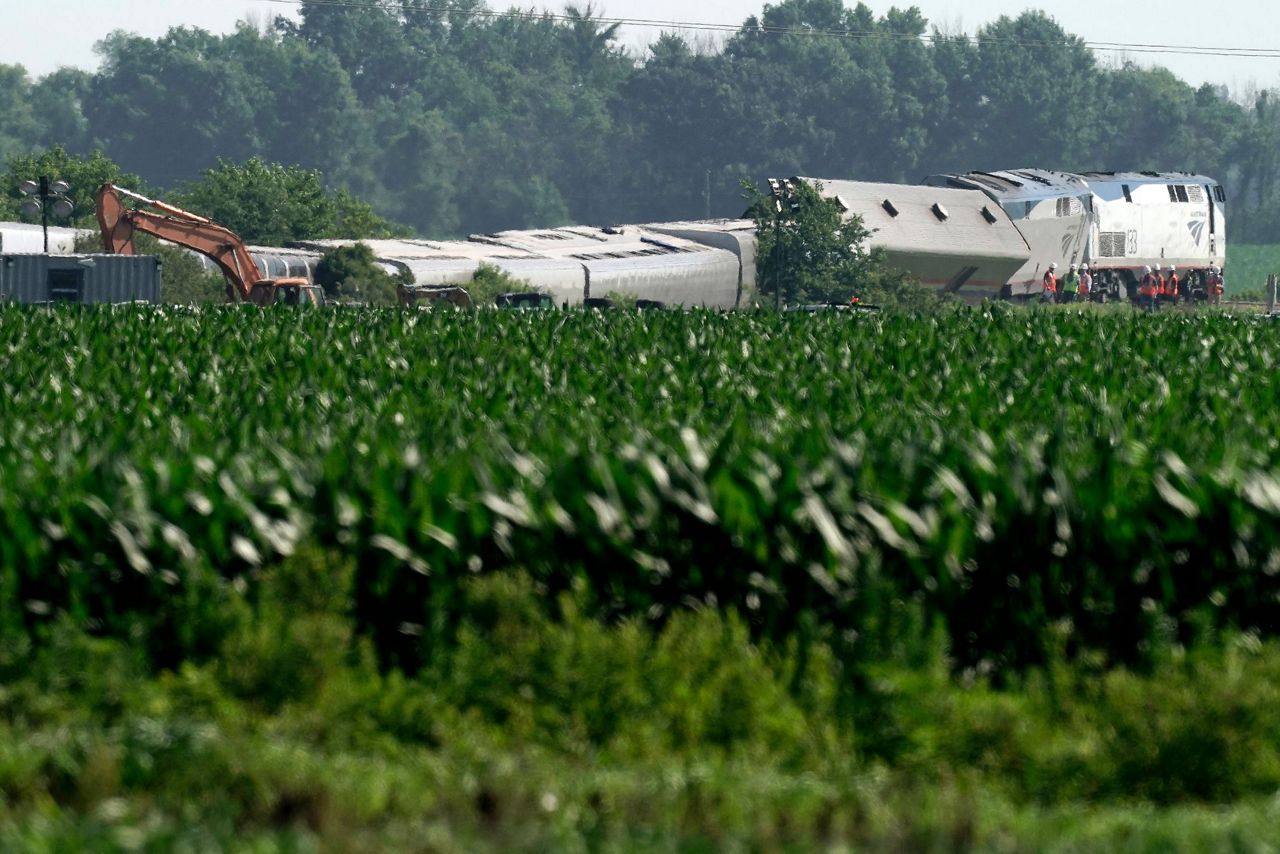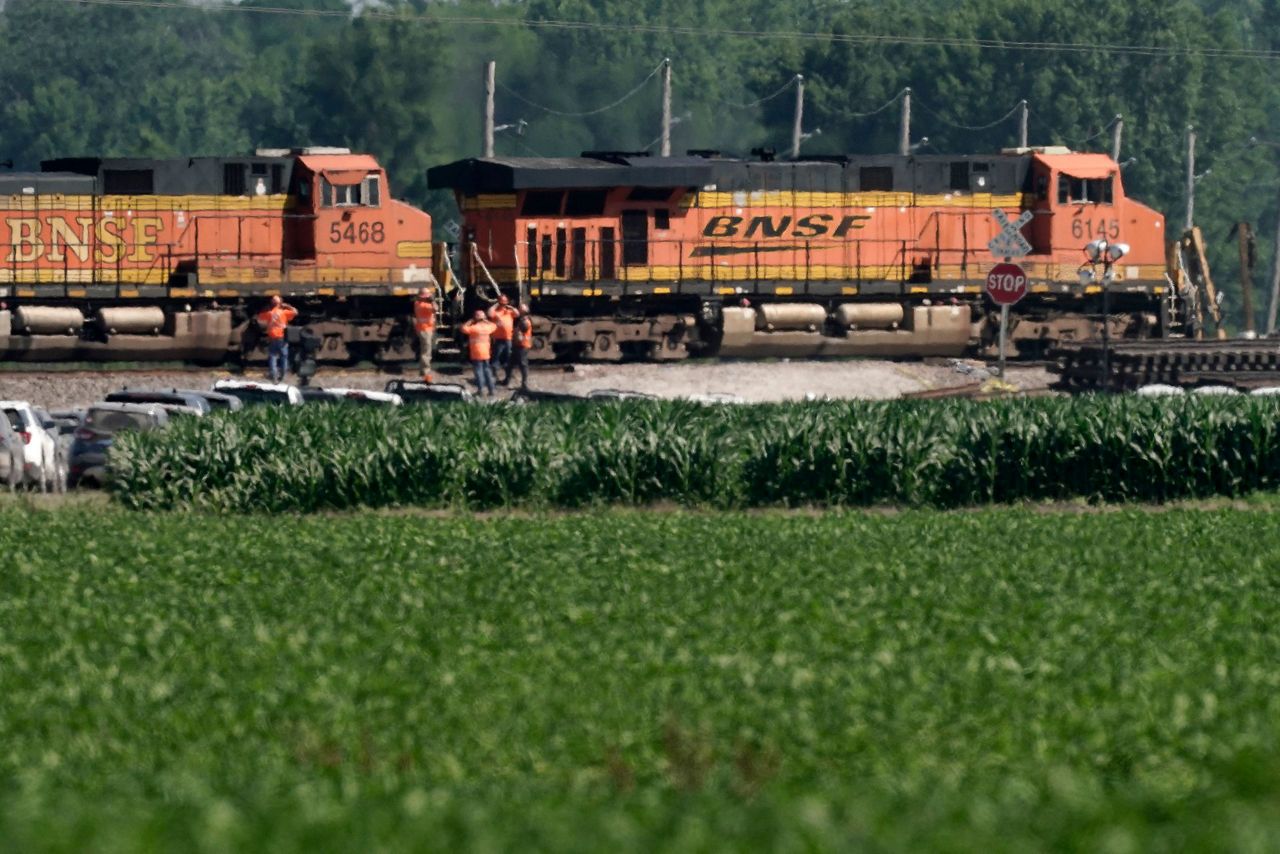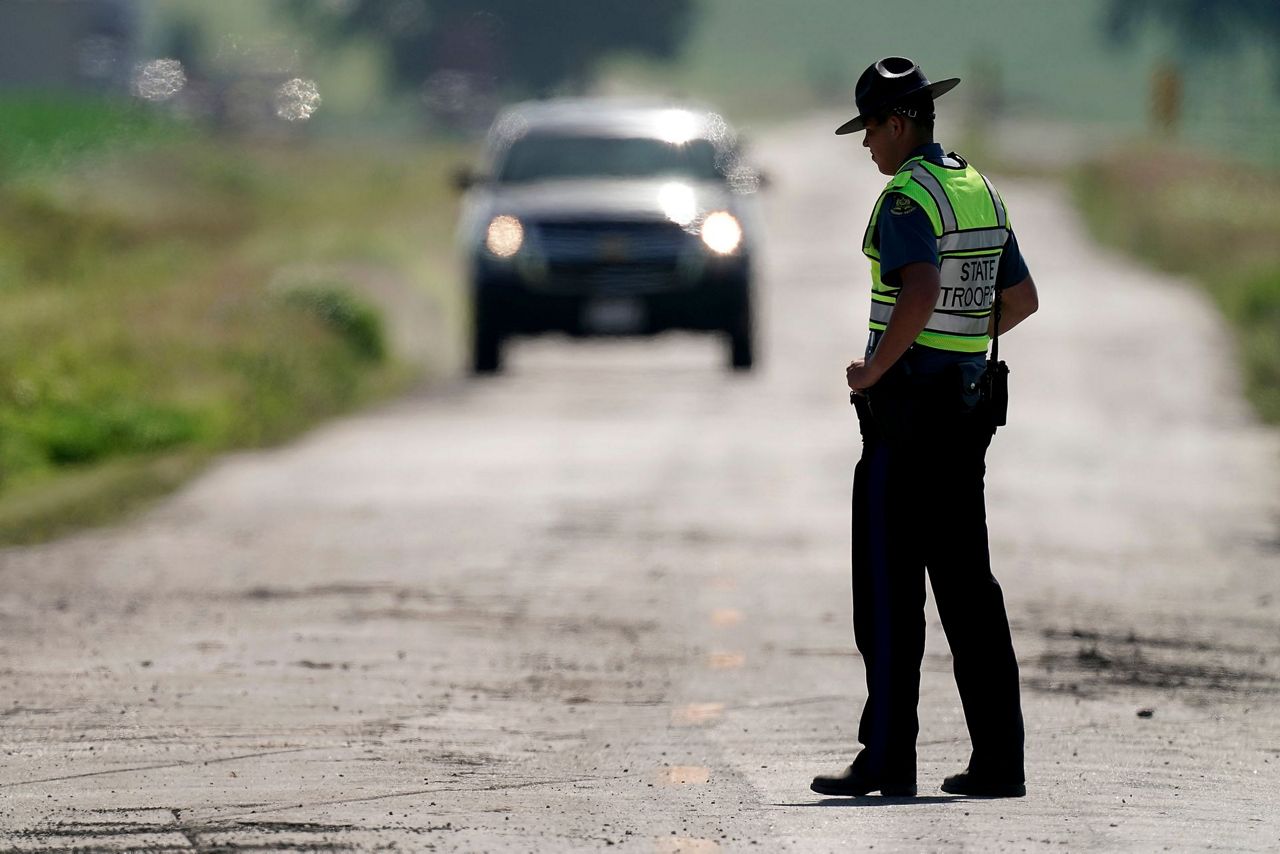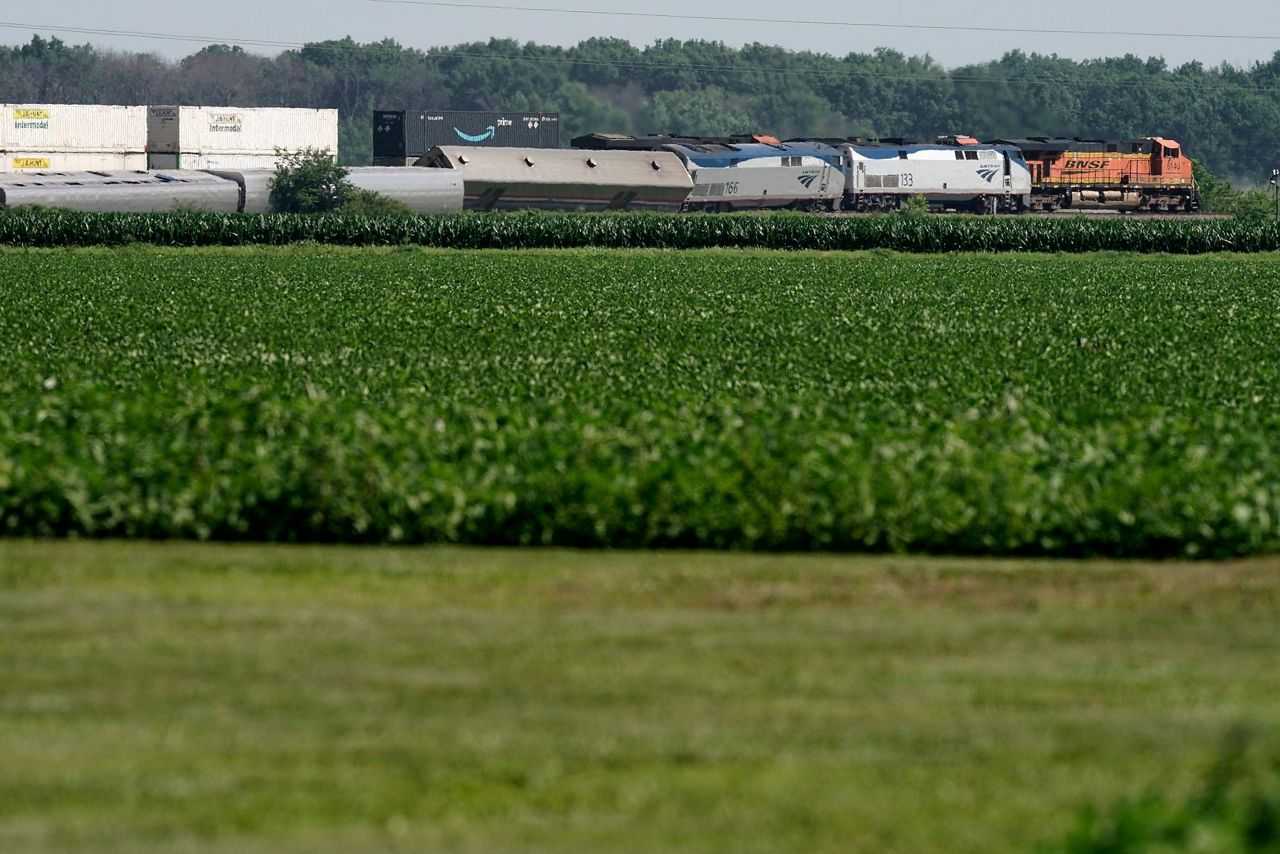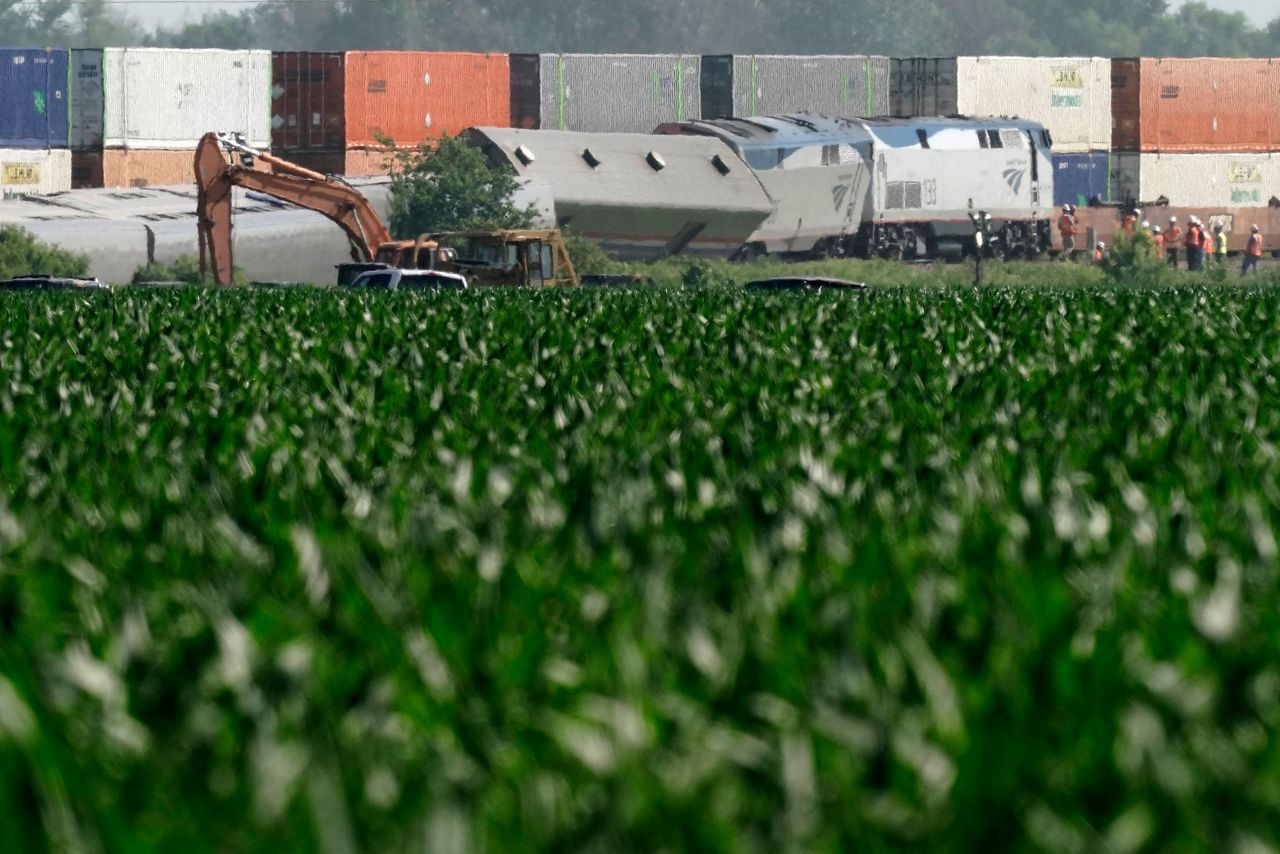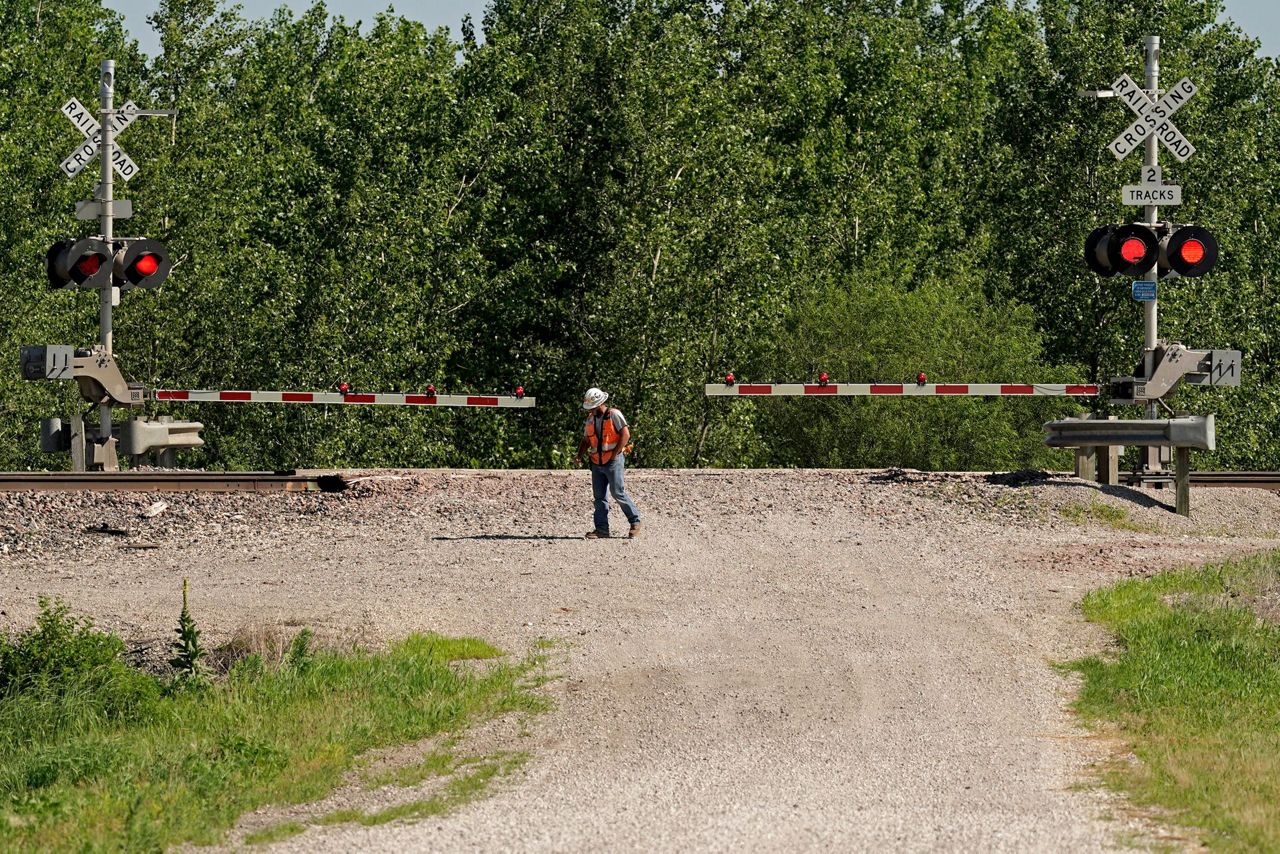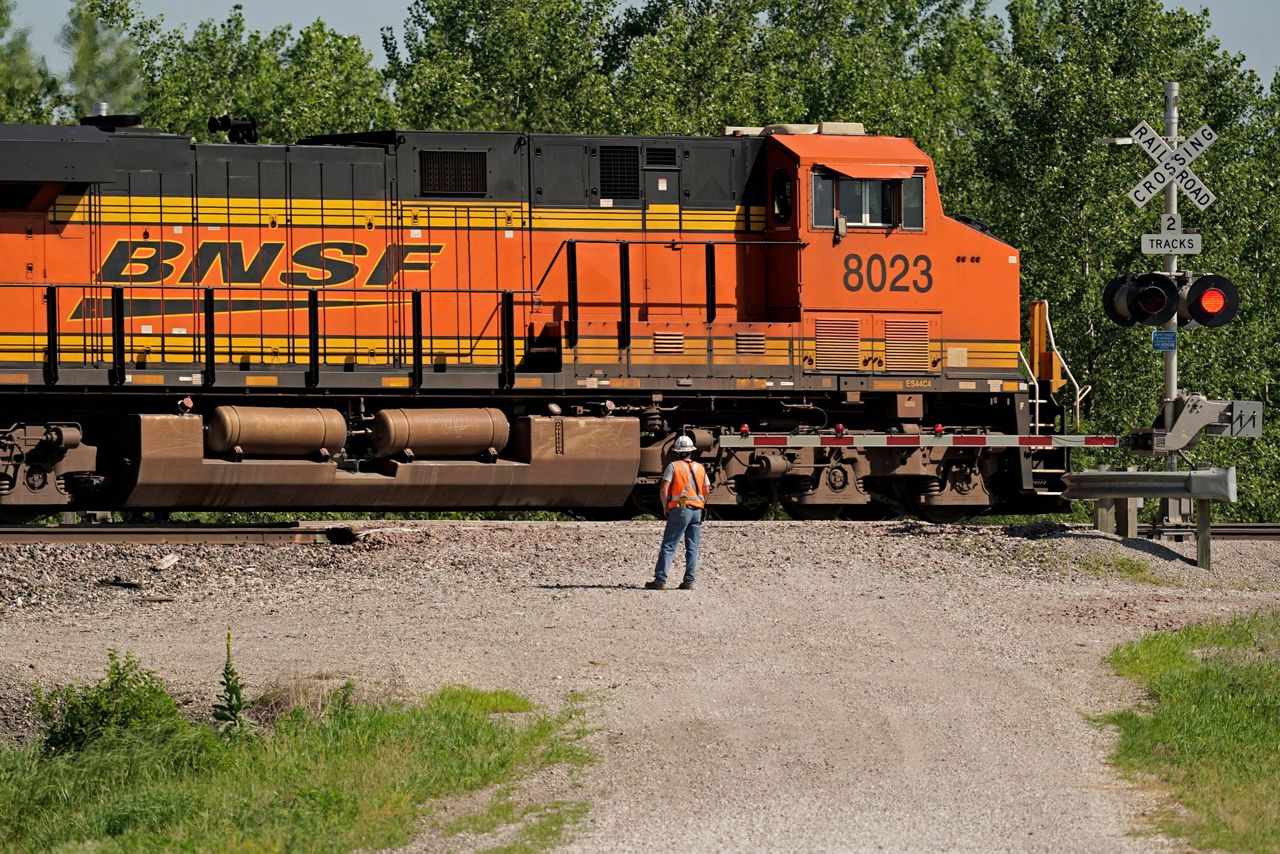MENDON, Mo. (AP) — The chief elected official in the Missouri county where an Amtrak train slammed into a dump truck said Tuesday that residents and county leaders have been pushing for a safety upgrade at the railroad crossing for nearly three years. Meanwhile, the toll from the accident rose to four deaths and 150 injuries.
A day after the deadly crash on Monday, the Missouri State Highway Patrol said people were taken to 10 hospitals with injuries ranging from minor to serious. By Tuesday afternoon, at least 15 people remained hospitalized. The dead — three passengers and the truck driver — have not been identified.
Amtrak’s Southwest Chief was traveling from Los Angeles to Chicago when it struck the rear of the truck. Two locomotives and eight cars derailed. Amtrak officials said about 275 passengers and 12 crew members were aboard.
National Transportation Safety Board Chairwoman Jennifer L. Homendy said at a news conference that the truck was owned by MS Contracting of Brookfield, Missouri, and was transporting material to a U.S. Army Corps of Engineers project nearby.
Homendy said investigators will download recorder information to determine the speed of the train, when the horn was blown and if the emergency brake was deployed. She said some of that information could be released as early as Wednesday. The speed limit at the crossing is 90 mph (145 kph).
The crossing in a rural area near Mendon in western Missouri has no lights or other signals to warn of an approaching train.
Chariton County Presiding Commissioner Evan Emmerich said in an email to The Associated Press that resident Mike Spencer first brought his concerns about the crossing to a Dec. 2, 2019, commission meeting. He was told to contact the Missouri Department of Transportation’s Railroad Safety division. A week later, commissioners spoke with officials from the state agency and were told “it is on their plans to repair,” Emmerich said.
After that, Emmerich cited other efforts by the commission. They included a March 2021 meeting with a state Railroad Safety division engineer at the crossing site; an email sent to the Railroad Safety division on May 23 to address concerns about visibility at the crossing; and a May 31 call to BNSF Railway, which owns the track, “to express our concerns with the visibility issue” at the crossing.
In January, the Missouri Department of Transportation submitted to the Federal Railroad Administration its “State Freight & Rail Plan” plan. It included a proposal to install lights and gates, along with roadway improvements. The project was estimated at $400,000. Typically, the federal government would pay 80% and the county 20%.
MoDOT spokeswoman Linda Horn said that with limited funds available, “it takes a while to get these prioritized.” She said the project has received approval in a four-year plan that runs through fiscal year 2026.
BNSF spokeswoman Lena Kent declined comment on “specific conversations” about upgrades to the crossing, citing the NTSB investigation, “however, I can tell you that BNSF has a proactive vegetation management program across our network,” she said.
Spencer told The Associated Press that he is among several people who have complained that the overgrowth of brush and the steep incline from the road to the tracks makes it hard to see oncoming trains from either direction. Spencer, who grows corn and soybeans on land surrounding the intersection, said the crossing is especially dangerous for those driving heavy, slow farm equipment.
Spencer is on the board of a local levee district. He said the dump truck driver was hauling rock for a levee on a local creek, a project that had been ongoing for a couple of days.
Earlier this month, Spencer posted a video on Facebook of the crossing that shows the steep gravel incline leading up to it.
“We have to cross this with farm equipment to get to several of our fields,” Spencer wrote with the posting. “We have been on the RR for several years about fixing the approach by building the road up, putting in signals, signal lights or just cutting the brush back.”
Homendy said “passive” crossings like the one near Mendon make up about half of all crossings in the U.S. She said there are 130,000 passive crossings nationwide and 3,500 in Missouri.
The NTSB has for years recommended actions such as closing passive crossings or adding gates, bells and other upgrades at passive crossings, Homendy said. She said the agency also has recommended technology to alert drivers to the presence of an oncoming train at crossings such as the one at Mendon that are on an incline.
“Lives could be saved,” she said.
Kyle Bullard, a 21-year-old student at Lindenwood University in suburban St. Louis, was traveling from a friend’s home in Kansas City, Missouri, to Kalamazoo, Michigan, for a wedding. He fell 10 feet onto his back when his cab tipped over.
Bullard and his friend escaped and returned to help others out of the train, but he said he’s still bothered by the image of a woman buried in rubble. He said someone was holding her hand, and he realized he couldn’t do anything to help her.
“We were grateful because we made it out alive, but we’re also sad because some people didn’t. We’re sorry for those families," Bullard said. "Yeah, I survived the train crash and I helped people, but it’s like, I did also see someone die. So it’s just like, it is what it is. And I’m gonna have to move on from it. But it’s just gonna be always in the back of my head.”
The incident in Missouri was among three fatal Amtrak accidents since Sunday.
Three people in a car were killed Sunday afternoon when an Amtrak commuter train smashed into it in Northern California, authorities said. Also, on Monday in Detroit, two people died when their vehicle collided with an Amtrak train. Police Chief James White said officers were dispersing drag racers and one vehicle sped away and tried to beat the train.
People have been injured or killed in at least six other accidents involving Amtrak trains since 2015. Last year, three people died and others were injured when an Amtrak derailed in north-central Montana as it traveled from Chicago to Seattle.
Amtrak is a federally supported company that operates more than 300 passenger trains daily in nearly every contiguous U.S. state and parts of Canada. The Southwest Chief takes about two days to travel from Los Angeles to Chicago, picking up passengers at stops in between.
___
Ballentine reported from Columbia, Missouri. Associated Press reporters Margaret Stafford in Kansas City, Missouri, and Jim Salter in O'Fallon, Missouri, contributed to this report.
Copyright 2022 The Associated Press. All rights reserved. This material may not be published, broadcast, rewritten or redistributed without permission.



